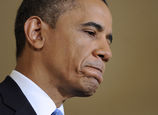
The Standing Committee of the National People's Congress passed new fund laws in late December which will bring privately offered investment funds under the oversight of the China Securities Regulatory Commission (CSRC), the country's securities regulator.
Many market watchers have cheered this move, since China's private funds, which are not sold to the public, have long been operating beyond the watchful eye of authorities. Few will no doubt be surprised to learn that several of these lightly regulated investment vehicles have found themselves at the center of illicit financing scandals in recent years. In fact, some 92 private funds were forced to wind down in the first half of 2012 due to illegal fundraising and insider trading, a record high, according to information issued in June from Shenzhen Rongzhi Investment Consultant Co Ltd, an independent data provider which covers private funds in China.
But while investors in China may have had their faith shaken in private funds, the Standing Committee's regulations may soon restore some of their legitimacy with the market. This could mean trouble for the country's public funds, which have largely been able to skate by with the strength of their reputations and a limited number rivals to challenge them.
Most of China's public funds derive the bulk of their revenues from asset management fees handed over by investors.

















 Beijing style: Duck, opera, fog and cough...
Beijing style: Duck, opera, fog and cough...


![]()
